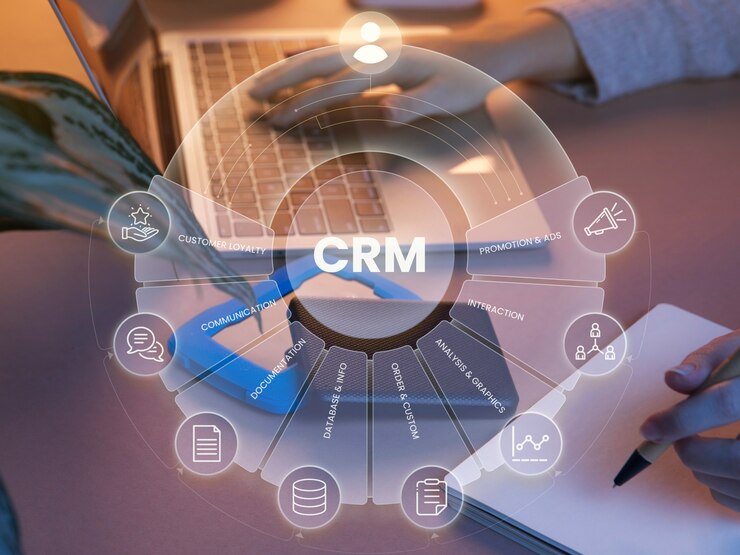Introduction to CRM Databases
In today’s fast-paced business world, organizations face a multitude of risks and challenges. Managing these effectively is crucial for success. Enter the CRM database—a powerful tool designed to enhance how businesses handle risk management. With its ability to store and analyze vast amounts of data, an CRM database can transform your organization’s approach to risk.
But what exactly does this mean for you? Imagine having streamlined access to important information, making informed decisions quickly, and navigating potential pitfalls with ease. The benefits are not just theoretical; they can lead to tangible improvements in performance across your entire organization. Let’s explore the top five advantages that come with implementing an CRM database and discover how it can be a game-changer for your business strategy.
Streamlined Data Management
Streamlined data management is a game-changer for organizations. An CRM database centralizes information, reducing the chaos of scattered files and outdated records.
With everything in one place, accessing critical data becomes effortless. Team members can quickly retrieve what they need without sifting through multiple sources.
Moreover, this centralized system minimizes human error. Automated processes ensure that updates are consistent and accurate across all platforms.
Collaboration flourishes when everyone has access to real-time data. Teams can work together seamlessly on projects, making informed decisions faster than ever before.
The result? A more organized approach that lays the groundwork for enhanced operational effectiveness within your organization.
Increased Efficiency and Productivity
AnCRM database transforms the way organizations operate. It automates routine tasks, reducing manual input and minimizing errors. This leads to a significant boost in overall efficiency.
Teams can access real-time data from a centralized platform. Gone are the days of searching through scattered files or databases. Information is readily available, enabling quick decision-making.
Collaboration also improves dramatically with shared access to critical resources. Team members work together seamlessly, regardless of location.
Additionally, streamlined processes free up time for employees to focus on high-priority projects. They can innovate rather than getting bogged down by repetitive tasks.
The result? A more productive workforce that drives your organization forward while enhancing morale and job satisfaction among staff members.
Enhanced Risk Analysis and Mitigation
An CRM database significantly improves risk analysis and mitigation strategies. By centralizing information, organizations gain a clearer view of potential risks across various departments.
With real-time data at their fingertips, teams can identify vulnerabilities quickly. This capability allows for timely interventions before issues escalate into larger problems.
Moreover, advanced analytics tools integrated within an CRM database provide predictive insights. These forecasts help organizations prepare for uncertainties that may arise in the future.
Collaborative features allow different units to share findings seamlessly. When all stakeholders are on the same page regarding risks, coordinated responses become more effective.
This comprehensive approach fosters a proactive culture around risk management. Organizations not only defend against threats but also cultivate resilience and adaptability as core competencies.
Improved Decision Making and Strategic Planning

An CRM database transforms how organizations approach decision-making. By consolidating critical data into one accessible platform, it allows leaders to gain insights quickly and accurately.
Real-time access to information fosters a culture of informed decisions. Teams can analyze trends and patterns that were previously buried in silos. This visibility empowers better forecasting and strategic planning.
Additionally, the ability to simulate various scenarios enhances risk assessment. Organizations can weigh potential outcomes before committing resources or strategies.
With comprehensive data at their fingertips, executives can prioritize initiatives aligned with organizational goals more effectively. This alignment paves the way for targeted actions that drive success.
In an ever-changing business landscape, agility is key. An CRM database equips teams with the tools needed to adapt swiftly while making well-informed choices based on concrete evidence rather than gut feelings alone.
Cost Savings and ROI
Implementing anCRM database can lead to significant cost savings for your organization. By centralizing data management, it reduces redundancy and minimizes the time spent on manual data entry.
This streamlined approach not only saves labor costs but also enhances accuracy. Fewer errors mean less money wasted in correcting mistakes or dealing with compliance issues.
Moreover, having a robust risk management system allows organizations to better allocate resources. You can identify areas of potential loss before they escalate into costly problems.
The return on investment (ROI) becomes evident as processes become more efficient. Teams that once struggled with disjointed systems now operate smoothly, freeing up valuable time for strategic initiatives.
In essence, when you invest in an CRM database, you’re not just spending money; you’re paving the way toward smarter financial decisions and sustainable growth for your business.
Conclusion
The benefits of utilizing an CRM database for your organization are substantial. From streamlining data management to enhancing decision-making processes, the advantages speak volumes about its value. Organizations that adopt this technology not only improve their operational efficiency but also gain insights that bolster risk analysis and strategic planning.
Investing in an CRM database translates into cost savings and a strong return on investment over time. As companies navigate complex environments filled with risks, having a robust system in place becomes essential.
Embracing an CRM database positions your organization for sustained growth and resilience. By harnessing the power of efficient data management practices, organizations can stay ahead in today’s dynamic business landscape while effectively mitigating risks along the way.










